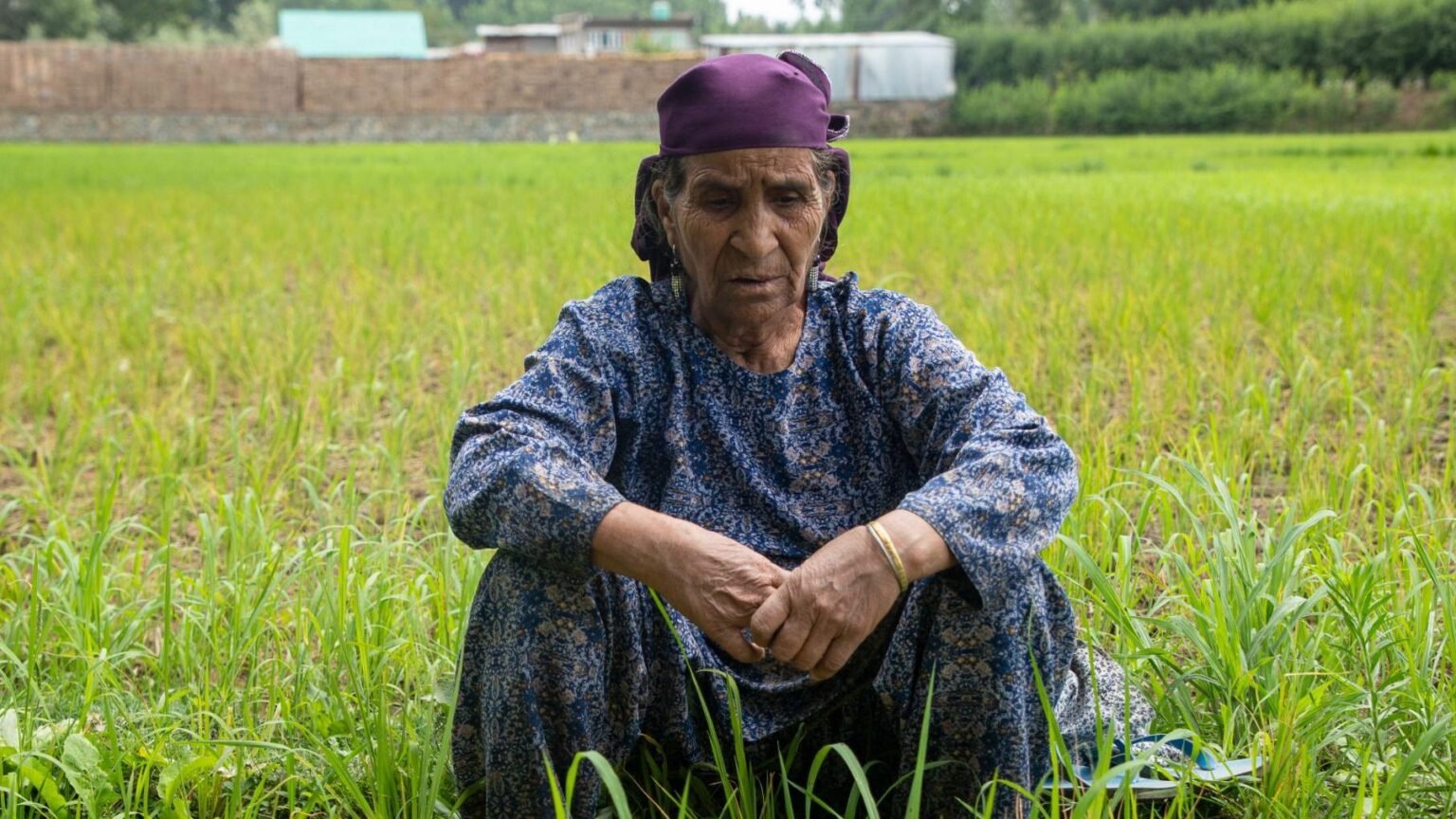Kashmir Heat Crisis: Farmers Struggle as Heatwave Devastates Crops
The Kashmir heat crisis has intensified over the past few months, gripping the valley with unrelenting temperatures and pushing farmers like Zaina Begum to the brink of despair. Standing beside her withering paddy field in Pulwama district, she had been waiting for over a month for rain to save her crops.
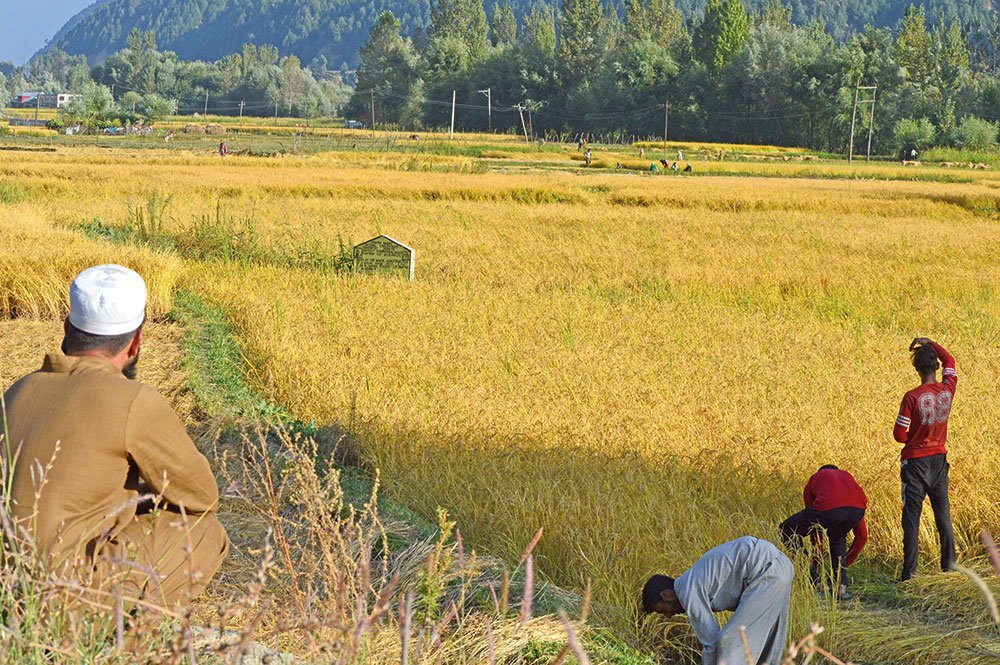
When the skies finally opened earlier this week, her hopes briefly rose — but the damage was already irreversible.
“Our land had completely dried up,” she lamented.
The picturesque Himalayan region, known for its cool climate and snow-capped peaks, has been recording unprecedented temperatures this summer. At 37.4°C (99.3°F), Kashmir recently logged its highest daytime temperature in 70 years — around 7°C above the seasonal norm.
June also marked the hottest month in five decades, prompting authorities to close schools and colleges for two weeks. Though some areas received heavy rains this week, experts warn that this relief is temporary, and the coming days may bring even more extreme heat.
Kashmir Heat Crisis and Agriculture: A Growing Climate Challenge
For generations, Zaina Begum’s family has cultivated paddy — a water-intensive crop — on their one-acre farm in Chersoo village. But over the last five years, erratic weather and inconsistent rainfall have wiped out successive harvests.
“This summer, our worst fears have come true,” she said. “We have nothing left.”
The heatwave has wreaked havoc on the region’s agriculture, with farmers reporting both lower yields and deteriorating crop quality.
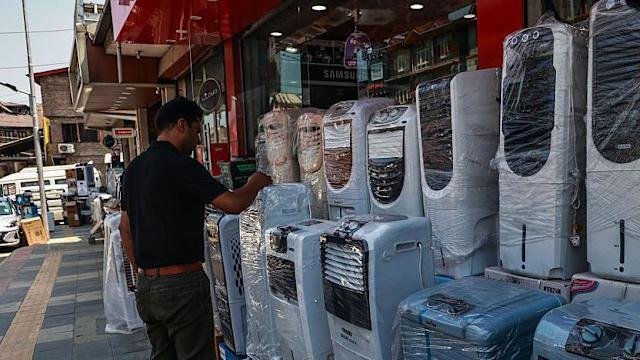
Ali Mohammad, an orchardist from Bandipore district, switched from rice to apples two decades ago due to unreliable rains. However, even his apple orchard — typically less water-dependent — is suffering.
“The orchards need watering at least three times a month. For the past two months, there was no rainfall, and the irrigation canals dried up,” he explained. Kashmir heat crisis.
Kashmir Heat Crisis: Rising Temperatures Threaten Human Health
The intense heat is not only damaging crops but also putting residents’ health at risk. Parveez Ahmad, a 63-year-old from northern Kashmir, had to be rushed to the hospital after suffering severe breathlessness.
“The doctors told me it was due to the heat and humidity,” he said.
Climate Change Accelerates Glacial Melt
Environmental experts warn that these extreme events are signs of a broader climate crisis. Reduced snowfall during winter and soaring summer temperatures have accelerated glacier melting, leading to water shortages and long-term risks for biodiversity.
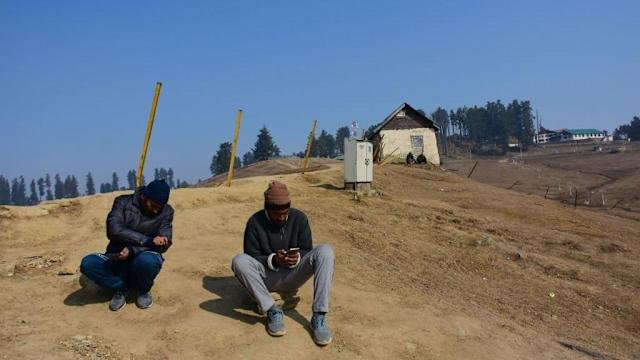
According to glaciologist Mohammad Farooq Azam, the diminishing western disturbances — Mediterranean storms that bring rain and snow to the Himalayas — are worsening the situation.
“Less snow cover means the ground absorbs more heat. As glaciers shrink, water availability becomes unpredictable, affecting agriculture and human settlements,” Azam explained.
Kashmir: A Victim of Global Climate Change
Jasia Bashir, a professor at the Islamic University of Science and Technology, highlighted that Kashmir contributes little to global carbon emissions due to its limited industrial activity.
“Yet, the region is paying the price for a crisis it did not create,” she said.
Urbanisation and Deforestation Worsen the Crisis
Rapid urban growth and deforestation have further weakened the region’s natural climate resilience. Reports show that Jammu and Kashmir lost nearly 0.39% of its total tree cover between 2001 and 2023 due to forest fires and clearing of land.
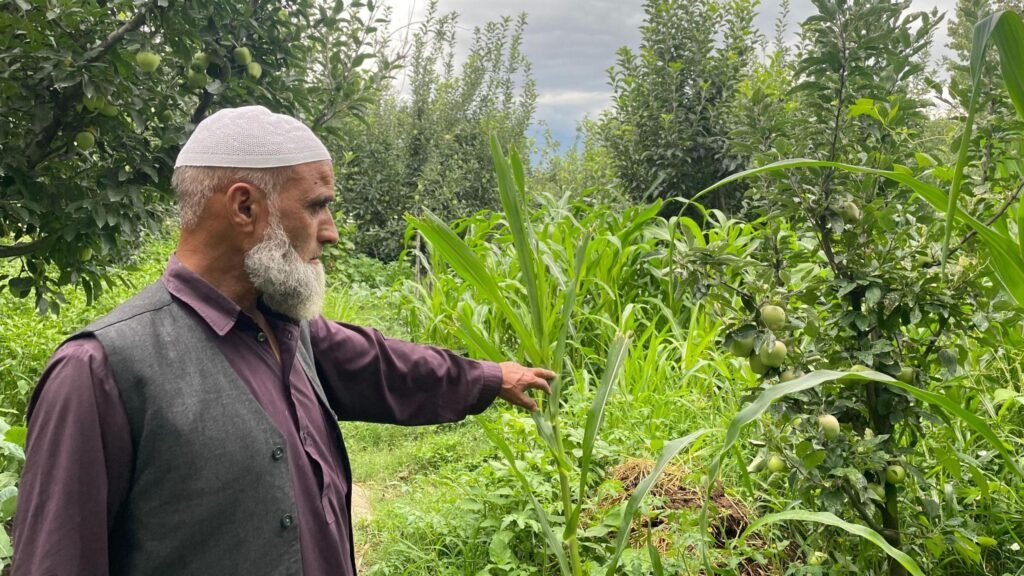
In addition, over 600,000 trees have been cut down in recent years, reducing natural shade and increasing heat absorption in urban zones.
The Rising Energy Demand Cycle
With rising temperatures, more people are installing air conditioners for the first time, increasing power demand and greenhouse gas emissions.
“This creates a vicious cycle — higher energy consumption leads to more emissions, which in turn intensify warming,” Bashir noted.
Call for Strong Climate Action
While local authorities claim they are addressing climate change, experts argue that much stronger policies, sustainable farming techniques, and water management plans are urgently needed.
“Climate change is not just a global issue; its effects are being felt in every household here,” Bashir emphasized.
